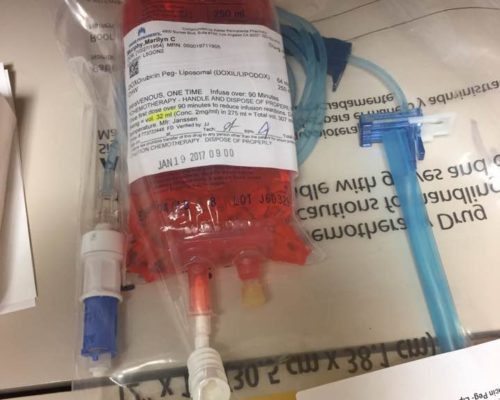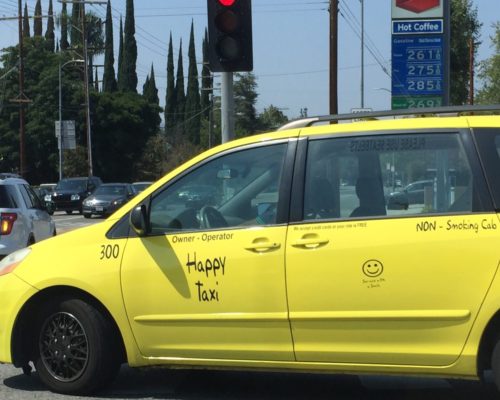My appointment with the breast surgeon is at 1:30.
I’ve been waiting since August for a surgery date at Kaiser’s Woodland Hills Medical Center, and I’m getting impatient. I want to get the prophylactic mastectomy done this month, so I can recover over the course of December and early January, and be ready to travel again early next year. Travel is what I do, and I have many opportunities I’d like to take advantage of, but this as-yet unscheduled surgery/recovery is a substantial window of time I need to block off on my calendar. I’ve already had consultations with a surgeon and plastic surgeon from Woodland Hills who have authorized the surgery. They told me that it should be an easy surgery, since I’m healthy and my breasts are small, and I’m not getting a larger implant. A single surgery, including the two of them, and it’ll get done.
I’ve just recovered from Stage Four ovarian cancer and ten months of chemotherapy. Except from one setback, when the December CT scan showed evidence of cancerous lymph node growth, resulting in a different chemo drug, the entire experience has been – not quite a blessing – but certainly not the horrid curse everyone thinks about such a diagnosis. The fluid around my lungs had only microscopic cancer, and that got taken care of with a simple procedure called thoracentesis. The surgeon who did the hysterectomy back in July, in her post-op report to Scott and my friend, Kathleen, said, “I don’t think it’s cancer. It looks like a borderline tumor to me. It could have been there for years. The tumor was small and not attached to other organs. I looked around and found no other evidence of cancer. I took out some lymph nodes to be tested, just in case, but it was a really easy surgery. She’s really healthy, and that helps. Everything’s been sent to pathology, so we’ll wait for their analysis.”
Last week, during a routine follow-up with my oncologist, I complained about not getting a surgical date in Woodland Hills. He gave me the referral to this center here in Hollywood, which is fine by me, since my entire oncology and chemotherapy team is here. Woodland Hills is convenient, but I’m hopeful that my chances here at the Sunset facility will be better.
I wait in the exam room, naked above my waist with a hospital gown open in the front. I’m organized. I have my cell phone with my list of questions, my recording device – because I often forget some of the details the doctors tell me – and my little notebook with notes from prior visits and phone calls.
She’s late. I look at my watch. 1:50. Today is Halloween, and I want to get back on the freeway as early as possible since lots of folks will want to get home before dark today. It was such an easy drive today. Only 35 minutes from my office.
I hear a knock and Dr Jennifer Lin comes in with her clipboard.
“Hello, Ms Murphy, I’m Doctor Lin.”
She’s probably in her mid-thirties, very pretty, in a black skirt and white lab coat. I’d read her bio on the Kaiser website and was pleased to learn that she went to med school at Johns Hopkins and Columbia. It’s been my experience with Kaiser that everyone is top notch.
“Hello, doctor. Do you mind if I record this session? I usually forget some details, and I want to be able to share everything with my husband.”
I can tell from the look on her face that she doesn’t want me this recorded. “I prefer not. You can take notes. Why don’t you call your husband and put him on speaker?”
“I’m not sure he’s home, and he often doesn’t pick up the phone, but I’ll try.”
I dial his number, and he answers on the second ring. “Hi, hon.”
Dr Lin speaks first. “Hello, I’m Doctor Lin. I’ve reviewed your wife’s medical record and I don’t think she needs the surgery.”
There is stunned silence.
She continues, “I don’t believe you should get the surgery but should concentrate on taking care of your ovarian cancer instead. Any surgery could comprise your recovery.”
“But the doctors in Woodland Hills authorized it,” I protested. “Mind you, I don’t want to have unnecessary surgery, but I’ve got the BRCA1 gene and want to minimize my risk for breast cancer.”
“You’re still on chemotherapy, and would need to go off it to have the surgery. You don’t have any breast cancer, and for as long as you’re on chemo, you won’t develop any cancers of the breast. There’s no imminent risk. This is my opinion, and I can’t speak for the other doctors.”
I’m gobsmacked. This information is a bombshell. I don’t know if I’m relieved or upset. I frantically process the sequence of events in my mind.
Scott says, “I’m surprised the doctors in Woodland Hills didn’t tell us any of this.”
“As I said before, doctors will have different recommendations. I reviewed your case with my team, and we all agree that you don’t need the surgery at this time.”
“Doctor,” I say, “I’m a bit confused by your language. You say I have Stage 4 ovarian cancer. But I’m cancer free.”
Scott says, “No, honey, they never said you’re cancer free. You’re in remission.”
“But as far as I’m concerned, my body is free of cancer, so I’m cancer free. That’s the way I want to think of this.”
Dr Lin explains, “You’re not cancer free. We don’t consider anyone cancer free until three years have passed with no evidence of recurrence.”
I continued to protest. “And I thought I was taking a maintenance drug. Now you’re telling me I’m still on chemotherapy?”
“The drug you’re on, ____, is a chemotherapy drug.”
I wrestle with this new information. If I hadn’t asked Dr Lentz for this referral, would they have eventually gone ahead with the surgery in Woodland Hills? And shouldn’t Dr Lentz have known that I shouldn’t have the surgery if I’m still taking chemotherapy?
“It’s your decision, but I think the surgery is unnecessary,” she repeated.
I look down at the list of questions I had for her. Will I still be aroused when my husband fondles my breasts? Can they remove the mole on the left breast while they’re at it? How does this procedure differ from a boob job?
None of my questions are relevant anymore. I consider how I’ve always heard of the importance of a second opinion, and managing your own medical process. What a gift this is, to have persisted with my plans for surgery, for the delay in Woodland Hills, and for this new, compelling advice.
But I’m bothered by her comment that, “You have Stage 4 ovarian cancer.” I’m afraid that my consciousness about perfect health has been compromised. My belief that I was cancer-free has been challenged by this doctor.
Scott suggests, “I’m not sure anybody ever recommended that you have the surgery. You took that upon yourself to get it done.”
Dr Lin glances through the pages on her clipboard.
“That’s possible,” she says.
I think back to the information I got from the genetics website, that BRCA1 carriers can reduce their risk for breast cancer by 95% with a prophylactic mastectomy. I’d also attended a workshop at the Cancer Community in Westlake Village, at which a dozen women, and one man, shared their experience of the surgery. My mother struggled with cancer all her life. I want to avoid that experience at all costs. I explain all this to Dr Lin.
“The surgery is only done for BRCA1 patients who don’t have ovarian cancer. They have not had a cancer diagnosis.”
I let this all settle. I should be delighted.
“Do either of you have any more questions?”
“Yes, I have one. What should I do now about the surgery request? Should I tell the doctors in Woodland Hills what you’ve said? Should I tell Dr Lentz?”
“All of this will be documented in your medical record. But I suggest you talk with Dr Lentz so it’s all clear to you.”
“Doctor, what should I be doing to take care of the ovarian cancer, as you suggest? Should I be exercising?”
“Yes, you could exercise, and eat plenty of fruits and vegetables. Limit animal fat.”
“Please, I need you to tell me to exercise, not just suggest it. Sometimes I need to be told what to do. Otherwise, I can – and will – sluff it off.”
“Okay, you should exercise.”
Scott and I both thank the doctor and he hangs up. Dr Lin shakes my hand and leaves the room. I sit for a moment before putting my clothes back on. I’m less certain than I was.
I take a deep breath and let it out slowly. What bothers me, more than anything, is that my belief in my self-proclaimed cancer freedom and completion of chemo has been discredited. Will this information sink in and negatively affect my good health? I want to believe that I’m cancer-free.
They can say what they want, and I can believe what I want. I know that my deeply-rooted assumption about having eradicated the cancer is the reason I’m so healthy, and will stay healthy. That’s my belief, and I’m sticking to it!

